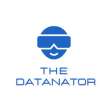Data Lake vs. Data Lakehouse
Advantages, Challenges and Use Cases

Data is everywhere nowadays. It can be collected from many sources such as maps, social media platforms, devices, etc. In order to work with the vast amounts of it, certain technology is needed. Here, Data Lakes and Data Lakehouses could come in handy, since both technologies work with Big Data and support and enable processes like Data Science and Data Analytics. This article, gives you theoretical background on these two solutions and also dives into their respective advantages and challenges.
What is a Data Lake?
A Data Lake is a central repository where organizations can store all of their large-scale structured, semi structured and unstructured data. Unlike traditional data storage solutions, you don't have to define the schema or structure of your data before storing it when having a Data Lake. You often work ELT processes where the data is loaded into the Data Lake without transformation. The transformation then takes place later in Data Analysis processes or in a Data Warehouse which can be built on the Data Lake. This means that you can store and later analyze all data regardless of its structure, format or size [1]. This results in several advantages such as:
- Flexibility: The Data Lake allows you to store all data types and formats, which means you can analyze data from any source without having to transform it first.
- Cost-effective: Data Lakes can be more cost-effective than traditional data storage solutions by eliminating the need for multiple storage systems.
- Scalability: Data Lakes can scale horizontally to accommodate growing data volumes and support distributed processing for faster analysis.
On the other hand, there are also certain complications when working with the Data Lake approach, since it requires significant governance and management efforts to ensure data quality, accuracy and security and needs the ability to store and integrate multiple data sources such as bulk , external or real time data, etc.
What is a Data Lakehouse?
A Data Lakehouse is a modern data management architecture that combines the functions of a Data Lake with those of a traditional Data Warehouse. The goal is to create a unified platform for storing and processing all types of data, from batch to streaming, structured to unstructured, and raw to refined.
Advantages of a Data Lakehouse:
The Data Lakehouse is bringing the positive aspects of both Data Lakes and Data Warehouses into a hybrid construction. As a result, both systems are no longer working alongside each other, but rather as a unified single system. The raw data is loaded into a flexible Data Lake data storage and then processed via ETL process into the Data Warehouse. From this position, it can be utilized for things like Machine Learning, BI Tools or other services.
Disadvantages of a Data Lakehouse:
Here, also the fact of high maintenance costs must be stated, since it is rather expensive to keep the technology running on a high level. Also, Data Lakehouses tend to be rather inflexible than other solutions.
Summary
So all in all you can say that the Data Lakehouse combines a Data Lake with a Data Warehouse. First, the data is loaded unformatted via ELT into a Data Lake. The reason for this is the instance that nowadays in the age of Big data, vast amounts of data is collected and gained through various approaches and formats. This collected data can be then made available for Machine Learning or for a Data Warehouse. For the latter, an ETL process is often used. In the Data Warehouse, the data can be then accessed in a formatted form for cases such as creating dashboards, reports or ad-hoc analyses.
Sources and Further Readings
[1] talend, Data Lake vs. Data Warehouse
About the Creator
The Datanator
Just a regular dude, who likes to write and share all about Data stuff (and other interesting things).






Comments (1)
Hello, I'm new to this platform. Would you mind checking out my post and giving me some valuable feedback? Thank you.